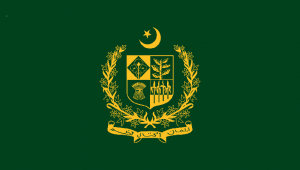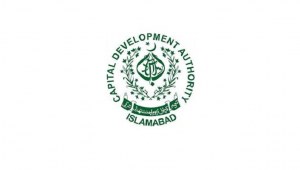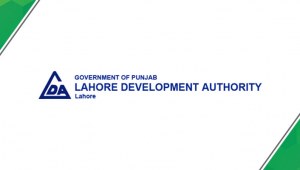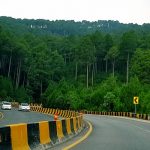Karachi: Conservation architect and Heritage Foundation Chief Executive Yasmeen Lari has bemoaned the demolition of historical buildings on M.A Jinnah Road at the hands of the Karachi Building Control Authority (KBCA), and has appealed to the media for help in safeguarding the remaining historical buildings. She pointed out that the land mafia was adamant to demolish historical buildings and replace them with multistorey skyscrapers.
“On one hand, the tragic events of December 28 resulted in the loss of scores of innocent lives, ruined hundreds of businesses, and devastated thousands of livelihoods; on the other hand, a large number of historic buildings were gutted,” she said.
Lari sought media’s help in the speedy return to business of those affected by the fire, through the preservation of the city’s heritage. Her briefing was focused on the recent unfortunate and willful demolition of historic buildings in Boulton Market and the Denso Hall area, which had been affected by fire and arson on December 28, 2009.
Transparency International (TI)-Pakistan President, architect Shahab Ghani; Institute of Architects Pakistan (IAP) President, architect Samar Ali Khan; Pakistan Council of Architects and Town Planners representative planner Sadia Fazli; Pakistan Engineering Council representative Engr Najeeb Haroon; Institute of Architect Pakistan ( IA)-Karachi Chapter representative, architect Mujahid Sadiq; University of Karachi (KU) Department of Visual Studies Head Durriya Kazi; Heritage Foundation board member Shehnaz Ramzi; and Farhan Jamlvy of KaravanPakistan were among those present.
The media was requested to help propagate the cause of saving the heritage structures located on MR-50, 51, 52, 53 and 144, Market Quarter, on M.A Jinnah Road, which had been declared dangerous by the KBCA, mainly because of the collapsed sections in the rear part of buildings. However, at least 50 per cent of all structures and the facades bordering M.A Jinnah Road were intact after the disaster and could be fully restored.
Lari spoke of the demolition that has been going on since January 20, 2010, and said that the structure and facades are being demolished despite advice that remedial measures are available for a major part of these buildings. She reiterated that the restoration process was the quickest way to re-establish livelihoods to help people rebuild their lives on an immediate basis.
She said that through the Foundation’s Adopt-a-Historic-Building Programme, the Karachi Electric Supply Corporation (KESC) was already providing support for the restoration of MR-144 (Hussaini Building).
On the request of the district coordination officer (DCO) Karachi, the Heritage Foundation has agreed to undertake the rehabilitation of four other buildings which have been declared dangerous. The work of removing rubble and debris from these buildings has to be taken up on a priority basis by the city government, to enable the Heritage Foundation to proceed with restoration work of the portions that have been dismantled.
TI-Pakistan Chairman Adil Gilani expressed support for the Heritage Foundation’s cause of saving Karachi’s heritage. He pointed out that a city which has suffered extraordinary violence has also suffered from the acts of the builders’ mafia, which, for commercial gain, is willing to destroy the environment of the city by building inappropriate high-rise buildings even in this area, instead of saving the footsteps of Karachi’s history.
He also reiterated that the role of civil society is to support causes which are beneficial to the general public. He emphasised that where corruption is rampant, such causes must be taken up by each and every one, particularly by the media, in an effort to raise awareness to achieve the goal of a just and equitable society. He also pointed out that if new buildings are built in place of historic buildings, they will have to follow the cutline of 30 feet from the present road edge, and many buildings in this area are already declared protected heritage. Therefore, along with losing valuable heritage, there will be little benefit to those who are bent upon destroying them. If anybody, it will be the small shopkeepers who will suffer the most and may not be able to gain their livelihood because of the greed of others, he said.
Architect Samar Ali Khan appealed to citizens to develop a greater sense of ownership of their city in order to resist attempts to deprive them of valuable heritage. Architect Shahab Ghani pointed out that plans were unfortunately under way to make Karachi a “replica” of Dubai. “Clearly, Karachi has its own identity and an urban character that has grown out of its distinctive historic architecture, which Dubai never had. Accordingly, its unique heritage must be retained and nurtured so that it can continue to endow Karachi with its special flavour. Any attempt at destruction of its heritage must be stopped,” he said.
Engr Najeeb Haroon explained that on the request of the city Nazim, a report on the buildings that had been declared dangerous was prepared by the Institution of Engineers.
The report clearly stated that the portions of buildings that were standing could be easily repaired and made habitable and safe. He offered that the institution was ready to provide honorary services in terms of technical input to save the historic buildings. Architect Mujahid Sadiq expressed complete support to the cause of Heritage Foundation and offered the services of the Institute for safeguarding Karachi’s heritage.
Durriya Kazi explained that groups of students of architecture from KU were already working with the Heritage Foundation in developing information about the buildings and will continue to provide whatever support that may be needed for this purpose. Shanaz Ramzi and Farhan Jamalvi thanked the media for supporting the Heritage Foundation and KaravanPakistan (earlier KaravanKarachi) for the past 10 years and for propagating the message of heritage preservation. They also spoke about the role of civil society as a watchdog in order to take up causes which may not be taken up by other institutions.
In conclusion a moving poem by Farhan Jamalvi and recited by Arif Bahalim of KaravanPakistan was presented on the theme of saving the heritage assets of the city. Farhan said that acts of terrorism also tarnishe the image of the city when urban historic environment and heritage is destroyed. “We have to join hands to save these footsteps of history,” he said.







